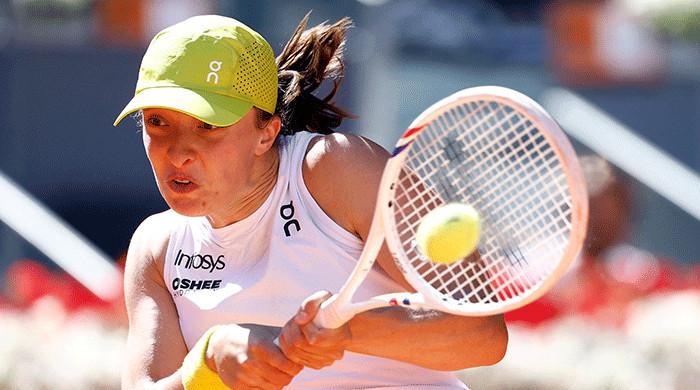Swiatek Highlights Player Paranoia Amidst Strict Anti-Doping Measures
Iga Swiatek, the world’s number two ranked player, has openly discussed the mental pressures resulting from tennis’s rigorous anti-doping protocols. She revealed experiencing significant difficulties following a suspension last year due to a tainted over-the-counter melatonin supplement.
Swiatek faced a one-month suspension after the International Tennis Integrity Agency (ITIA) found trimetazidine, a prohibited substance, in her system. The ITIA determined that the substance originated from melatonin acquired without a prescription.
The agency acknowledged that the positive result was not due to intentional doping.
The Polish athlete’s remarks come at a time of increased apprehension within the tennis world, following similar prominent instances, such as that of Jannik Sinner, who is currently serving a three-month suspension.
Sinner’s case involved two positive tests for clostebol, a banned substance discovered in a topical spray his physiotherapist used for a hand ailment.
Speaking on Wednesday, Swiatek commented on the heightened precautions athletes must take to comply with anti-doping regulations: “After a few years, it’s constantly on your mind.”
She added, “It generates some unease, and I’m not just referring to myself. I’ve grown accustomed to the system and overcome the most challenging aspects, allowing me to recover. I feel like nothing can truly hinder me now.”
Despite moving beyond her own experience, Swiatek recognized the growing sense of unease among players.
The world number two further stated, “I am aware, from other players as well, that it’s not straightforward. The entire system presents challenges because I lacked substantial control over what transpired. I can appreciate that some players constantly fear it could happen to them.”
Swiatek also voiced concerns regarding the difficulties presented by the anti-doping “whereabouts” system. This system mandates that athletes specify a one-hour window each day for potential testing, irrespective of travel or tournament schedules.
Swiatek explained, “With the continuous requirement to provide your location and all associated details, the system itself can be difficult to manage.”
Fellow prominent player Ons Jabeur shared Swiatek’s worries, mentioning that early-morning tests have left her feeling anxious.
Jabeur from Tunisia, shared similar feelings, expressing that she feels “traumatized” by her doorbell, which often rings at 5 a.m. for the purpose of drug testing.
The three-time major finalist said, “I understand that maintaining a clean sport is crucial. However, I am definitely very concerned.”



Comments (0)
No comments yet. Be the first to comment!
Leave a Comment